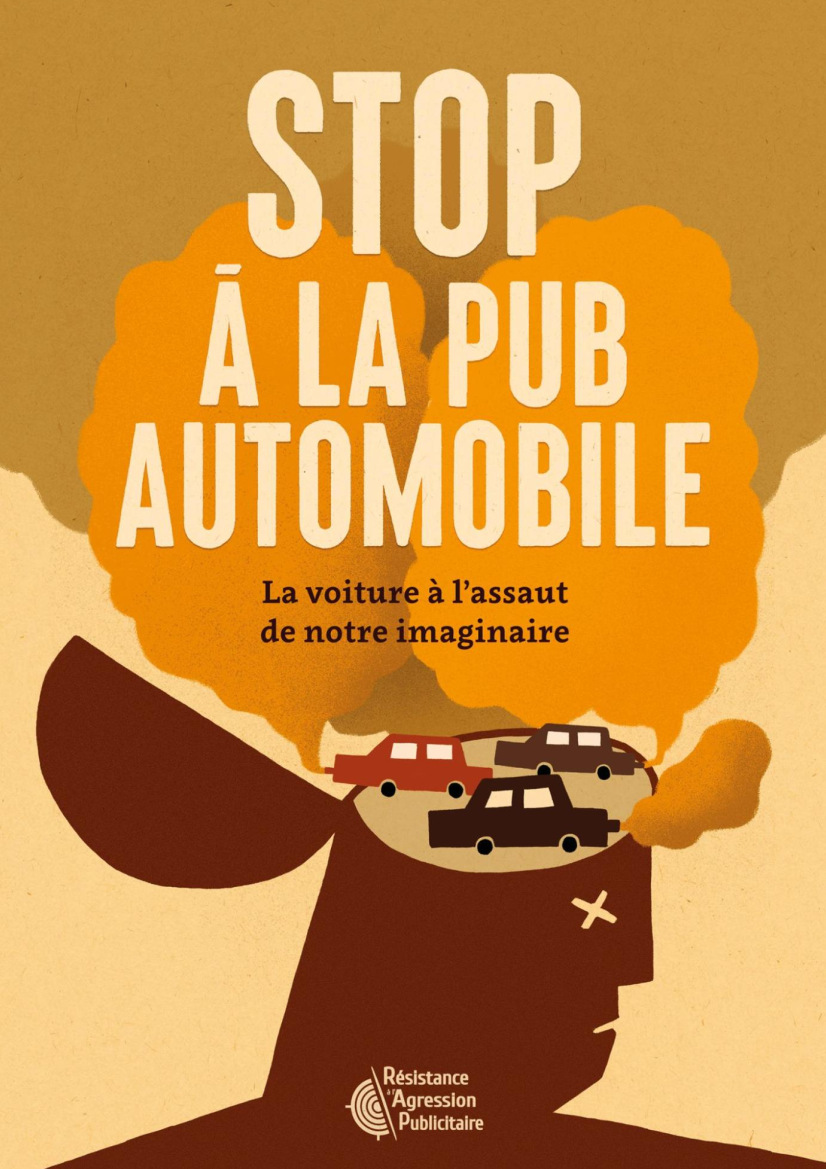
As the ‘Mondial de l’Auto’ (Paris Motor Show) opens to the public, French association R.A.P. “Résistance à l’Agression Publicitaire” (Resistance to Advertising Aggression) is publishing an original report titled ‘Stop à la Pub Automobile – La voiture à l’assaut de notre imaginaire’ (‘Stop car advertisement – Cars attacking our imagination’). The report highlights the negative impacts of car advertising. Through unrivaled pressure, they do perpetuate stereotypes and excess, incompatible with an ecological transition.
This trailblazing report about the stakes behind car advertising shows that:
- Manufacturers and governments are favouring heavy vehicles, more powerful, more numerous and more polluting, presenting technological innovation as the only solution for health and environmental issues, while we should instead be implementing ‘sobriety’ measures (demand reduction measures).
- From September 2022 to September 2024, R.A.P. has analysed 137 car adverts. The association was able to extract various arguments used to promote individual cars, such as speed, elitism, futurism, individualism, durability or comfort.
- In France, the automobile sector spends about 2.5 billion Euros each year in advertising in various media. For 2019, this represents, in advertising pressure, 28 daily pages in the press, 8h45 of TV adverts per day spread on all channels (4.5min per channel), and 318 718 posters in the public space.
Against these excesses, the report shows that existing measures supposed to regulate the advertising industry are insufficient: legal notices, climate contracts and self-regulation instances are failing to counterbalance the normative influence of these campaigns. R.A.P. has analysed all 56 existing contracts in the automotive industry (from the Climate and Resilience French law) The verdict? 80% of indicators are vague or undefined. None is committing to any sobriety measure, such as reducing cars’ weight or speed. At a time where only electric cars are promoted, the limited and sectoral prohibitions of advertising for fossil fuels are also failing to drive the market towards lighter and more sober vehicles. Yet, the global number of individual cars must decline.
R.A.P. is advocating for effective bans, which have proven their worth. For the automotive industry, it would translate in a ban of any propaganda or advertising for a terrestrial motorised vehicle whose weight is above 270kg (600 lb), with the exception of public transports.
According to Camille Aboudaram, campaigner for the ‘Stop Pub Climaticide’ (‘Stop Climate-Damaging Ads’) campaign: “The car advertising sector is going off the rails. In the name of the ecological and health imperative, the government must now ban all advertising that glorifies individual cars, and make using it uncool”.

